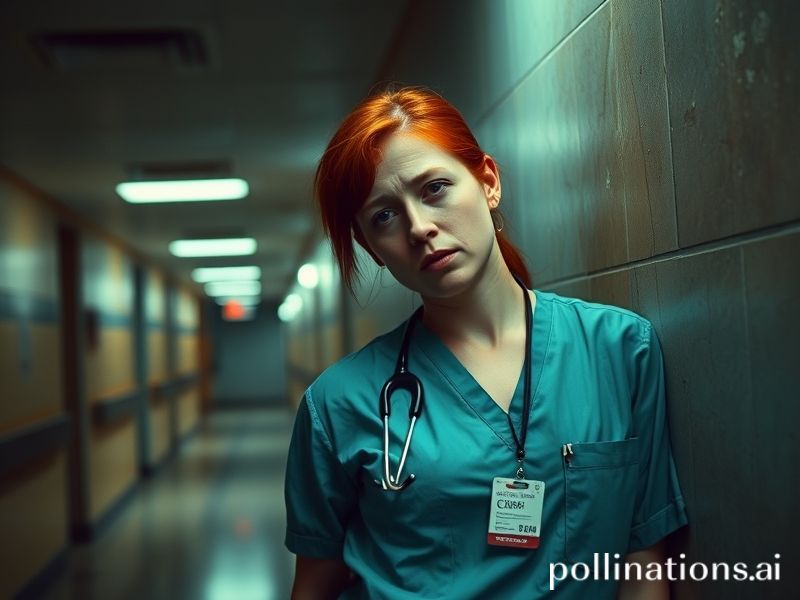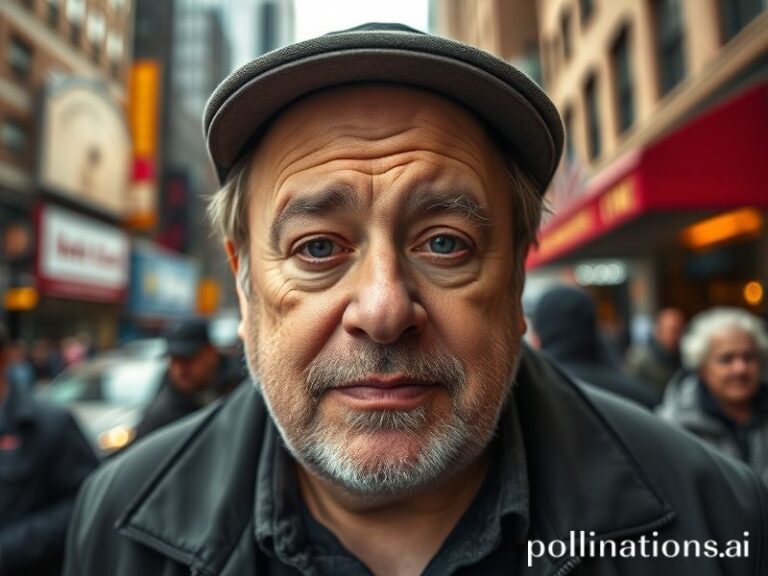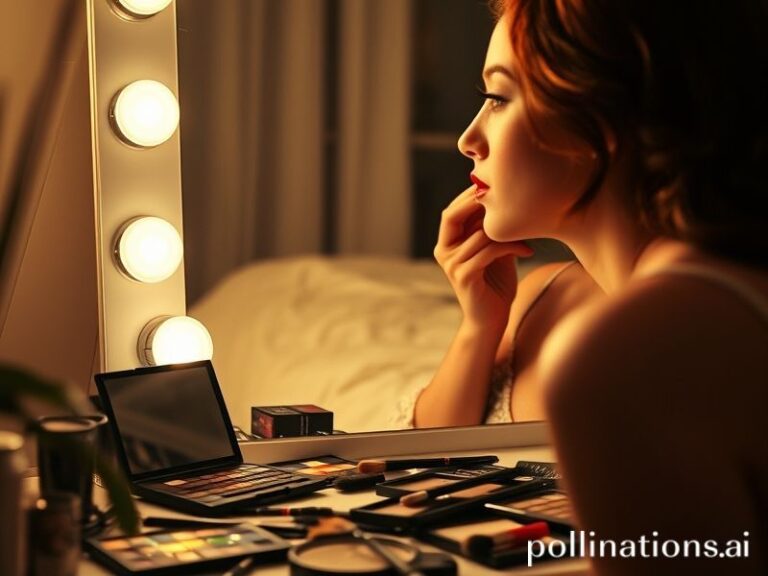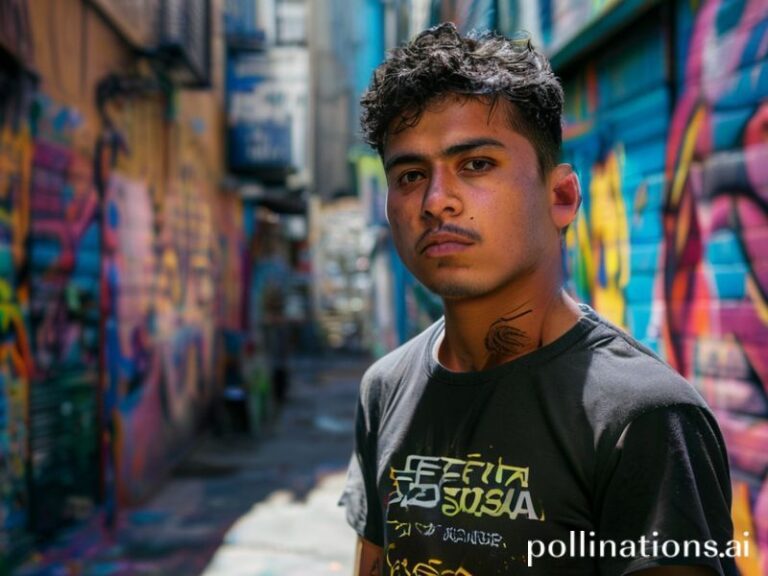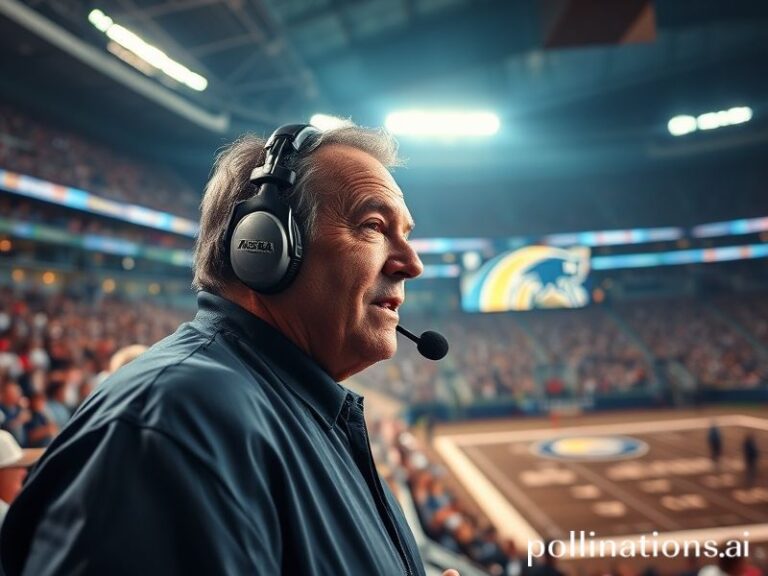Nurse Jackie Goes Global: How One TV Addict Became the Patron Saint of Worldwide Burnout
Nurse Jackie and the Global Art of Self-Medication
By Special Correspondent for Dave’s Locker, somewhere between customs and rehab
There is a moment in the pilot of “Nurse Jackie” when our protagonist, eyes glazed like a Viennese pastry, palms a fistful of Percocet meant for a construction worker who “fell on a rebar.” In the background, a heart monitor sings its tinny lullaby. It is 2009, Lehman Brothers is still warm in its grave, and the world has decided that if capitalism is going to collapse, it might as well do it pleasantly numb. From Reykjavik to Rio, pharmacies report a sudden spike in “anxiety-related prescriptions,” and every ER from Lagos to Liverpool is hiring. Jackie Peyton is not merely an American anti-heroine; she is a one-woman World Health Organization, proving that the fastest route to universal health coverage is simply to steal it.
Internationally, the show landed like a well-aimed suppository. In countries with actual socialized medicine—Norway, say, where they treat addiction with more hygge than handcuffs—Jackie’s pill-popping looked like a quaint American excess, the way we once viewed Soviet bread lines. Meanwhile, in India, where generic opioids are cheaper than bottled water, nurses watched Jackie’s sleight-of-hand and muttered, “Six seasons and she never once reuses an ampoule? Amateur.” The United Nations Office on Drugs and Crime even cited the series in its 2012 report under the heading “Soft Power and Soft Tablets,” noting that Google searches for “oxycodone” spiked everywhere Netflix launched. Soft diplomacy has many syringes.
The broader significance, if one insists on being tediously serious, is that Jackie dramatized the moment when healthcare itself became the disease. Across the planet, medical systems were pivoting from curing patients to curating customer satisfaction scores. In London, junior doctors were striking over 90-hour weeks; in Manila, nurses were flying to Dubai to wipe royal bottoms for triple the pay. Jackie’s genius was to recognize that the real drip wasn’t in the IV— it was the slow drip of institutional betrayal. If you can’t beat the system, you might as well empty its morphine cabinet and wink at the CCTV.
Dark humor, of course, is the last universal language. During the pandemic, Italian intensivists binge-watched the show between shifts and turned Jackie’s “Make me feel something” line into a morose drinking game. (Rules: one shot for every intubation, two if the family Zoom-calls from the parking lot.) In Brazil, where Jair Bolsonaro advised citizens to “stop whining,” memes circulated of Jackie shrugging with a caption: “At least I’m honest about my coping mechanisms.” Even the Taliban, once they retook Kabul, discovered bootleg DVDs and reportedly debated whether Jackie’s adultery was worse than her opioid theft. Consensus: the adultery, obviously.
What the series ultimately exports is not American decadence but the grim universality of burnout. From Nairobi public hospitals where nurses stitch patients under cell-phone flashlights to Tokyo clinics where “death from overwork” has its own kanji, the Jackie Phenomenon is less about pills than about the quiet, collective decision to keep functioning while quietly imploding. The World Bank could save millions on mental-health white papers by simply translating Jackie’s deadpan stare into 40 languages.
Conclusion: Seven years after the finale, Jackie Peyton has become a sort of secular saint for the chronically exhausted. Pilgrims leave empty blister packs at St. Vincent’s Hospital in Manhattan like votive candles. The WHO, ever alert to branding opportunities, briefly floated a “Nurse Jackie Day”—then remembered the optics of celebrating fictional drug diversion. Still, somewhere tonight, a nurse in Jakarta palms a tramadol, sighs, and thinks, “What would Jackie do?” The answer, of course, is whatever keeps the heart monitor singing and the malpractice lawyers at bay. Universal healthcare, it turns out, is just another controlled substance—best administered in small, cynical doses.

